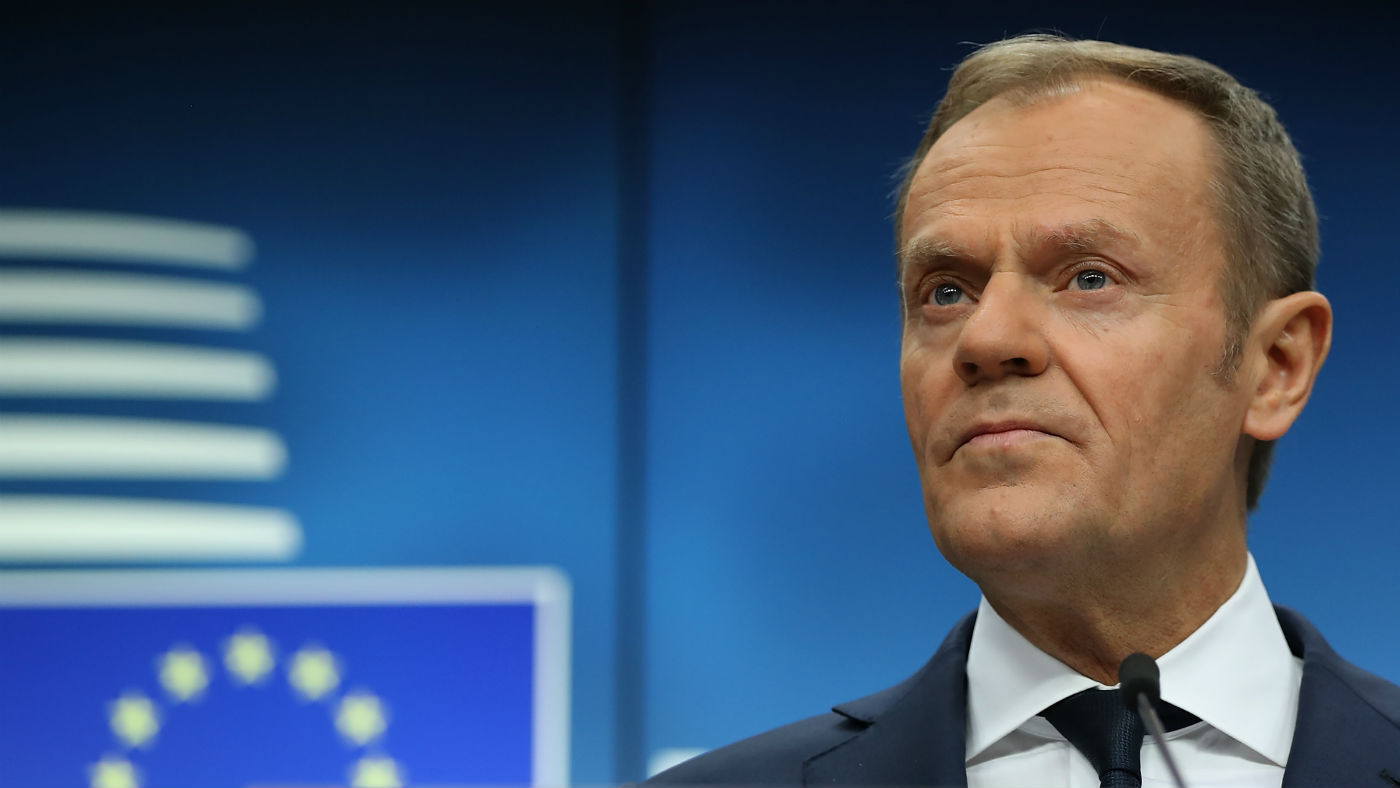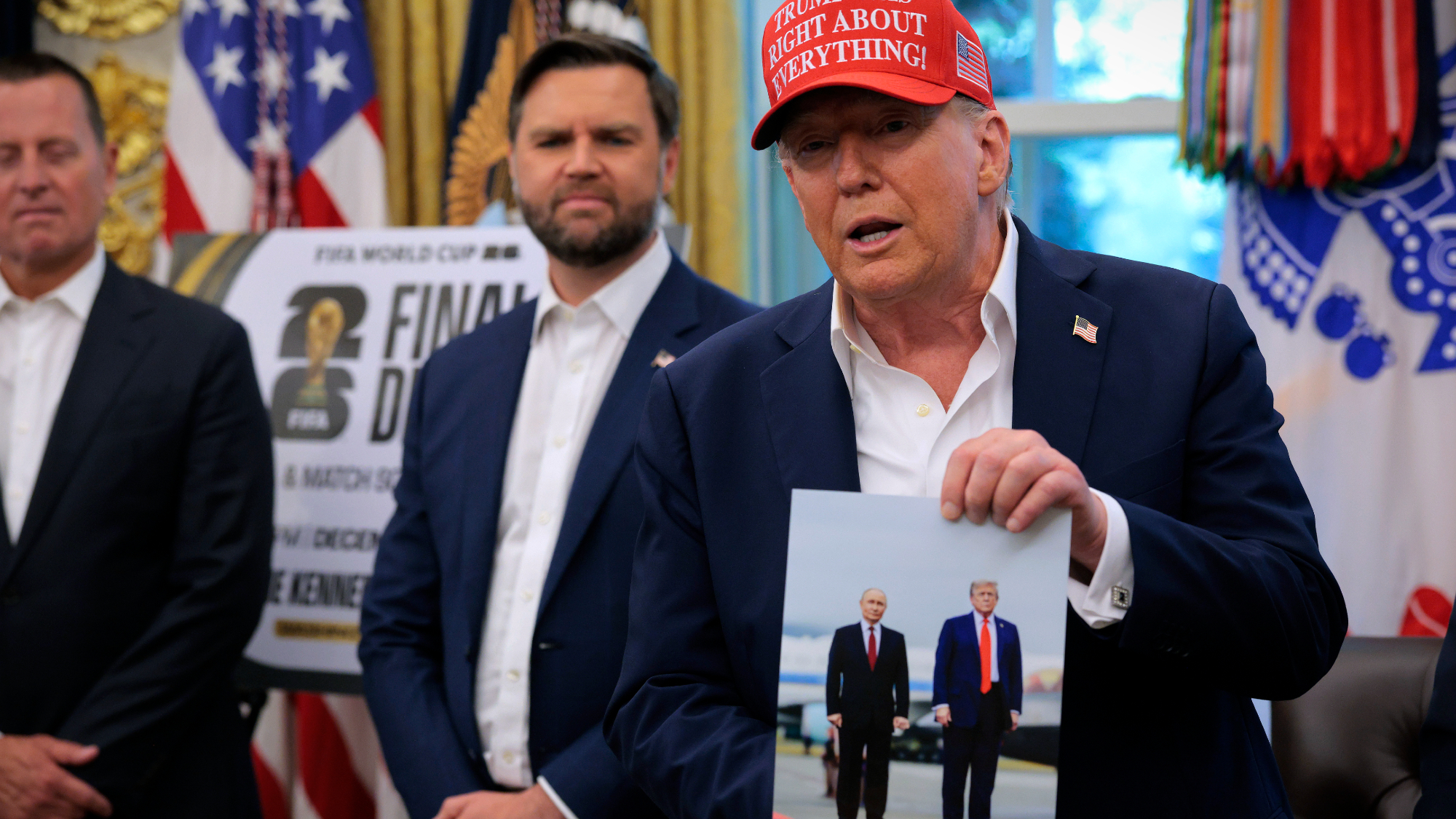Scotland rejoining EU: what would it take?
Nicola Sturgeon says independence offers country’s only route back into the bloc in wake of Brexit

A free daily email with the biggest news stories of the day – and the best features from TheWeek.com
You are now subscribed
Your newsletter sign-up was successful
Former European Council president Donald Tusk has said that he believes the EU would be “enthusiastic” about the prospect of Scotland rejoining the EU as an independent nation.
In a significant boost to the Scottish National Party’s campaign for a second independence referendum, Tusk told BBC One’s The Andrew Marr Show that there was widespread “empathy” with the desire of many Scots to rejoin the bloc following Brexit.
On Friday, in a speech marking Britain’s formal departure from the EU, SNP leader Nicola Sturgeon told supporters in Edinburgh that independence was now Scotland’s only route back in.
The Week
Escape your echo chamber. Get the facts behind the news, plus analysis from multiple perspectives.

Sign up for The Week's Free Newsletters
From our morning news briefing to a weekly Good News Newsletter, get the best of The Week delivered directly to your inbox.
From our morning news briefing to a weekly Good News Newsletter, get the best of The Week delivered directly to your inbox.
How could it work?
If Scotland were to become a member of the EU while England remained outside the bloc, an EU land border would be created between the two countries. This would probably lead to negotiating difficulties similar to those posed by the border between Ireland and Northern Ireland, with potential disruption in the trade of goods and services as Scotland becomes a member of the single market.
Scotland would also have to go through the formal accession process and apply to the EU like any other country, including proving that it had the required “democratic, regulatory and institutional structures” in place as an independent country, according to Glasgow-based newspaper The National.
Is it likely?
A free daily email with the biggest news stories of the day – and the best features from TheWeek.com
Although Scotland appears unlikely to face much opposition to EU membership from the 27 member states, the British government is fiercely opposed to the independence campaign, as the Financial Times notes. Boris Johnson has repeatedly ruled out granting the necessary permission for a repeat of the 2014 independence referendum.
–––––––––––––––––––––––––––––––For a round-up of the most important stories from around the world - and a concise, refreshing and balanced take on the week’s news agenda - try The Week magazine. Start your trial subscription today –––––––––––––––––––––––––––––––
In that vote, Scotland chose not to break off from the rest of the UK, by 55% to 45%. However, support for independence has swelled since the 2016 EU referedum, in which the Scots voted by 62% to 38% in favour of Remain.
A YouGov poll last week found that 51% of Scots are now for independence and 49% against (with those who said they don’t know discounted).
All the same, most senior SNP politicians “would rather see support running at closer to 60% before they enter a referendum campaign”, says the BBC.
But The Independent reports that party leader Sturgeon has not ruled out holding a “consultative” (legally non-binding) referendum in lieu of authorisation from Westminster in order to establish the state of opinion in Scotland.
-
 The environmental cost of GLP-1s
The environmental cost of GLP-1sThe explainer Producing the drugs is a dirty process
-
 Greenland’s capital becomes ground zero for the country’s diplomatic straits
Greenland’s capital becomes ground zero for the country’s diplomatic straitsIN THE SPOTLIGHT A flurry of new consular activity in Nuuk shows how important Greenland has become to Europeans’ anxiety about American imperialism
-
 ‘This is something that happens all too often’
‘This is something that happens all too often’Instant Opinion Opinion, comment and editorials of the day
-
 How corrupt is the UK?
How corrupt is the UK?The Explainer Decline in standards ‘risks becoming a defining feature of our political culture’ as Britain falls to lowest ever score on global index
-
 The high street: Britain’s next political battleground?
The high street: Britain’s next political battleground?In the Spotlight Mass closure of shops and influx of organised crime are fuelling voter anger, and offer an opening for Reform UK
-
 EU-Mercosur mega trade deal: 25 years in the making
EU-Mercosur mega trade deal: 25 years in the makingThe Explainer Despite opposition from France and Ireland among others, the ‘significant’ agreement with the South American bloc is set to finally go ahead
-
 Who is paying for Europe’s €90bn Ukraine loan?
Who is paying for Europe’s €90bn Ukraine loan?Today’s Big Question Kyiv secures crucial funding but the EU ‘blinked’ at the chance to strike a bold blow against Russia
-
 Moscow cheers Trump’s new ‘America First’ strategy
Moscow cheers Trump’s new ‘America First’ strategyspeed read The president’s national security strategy seeks ‘strategic stability’ with Russia
-
 Is a Reform-Tory pact becoming more likely?
Is a Reform-Tory pact becoming more likely?Today’s Big Question Nigel Farage’s party is ahead in the polls but still falls well short of a Commons majority, while Conservatives are still losing MPs to Reform
-
 Taking the low road: why the SNP is still standing strong
Taking the low road: why the SNP is still standing strongTalking Point Party is on track for a fifth consecutive victory in May’s Holyrood election, despite controversies and plummeting support
-
 Russian drone tests Romania as Trump spins
Russian drone tests Romania as Trump spinsSpeed Read Trump is ‘resisting congressional plans to impose newer and tougher penalties on Russia’s energy sector’